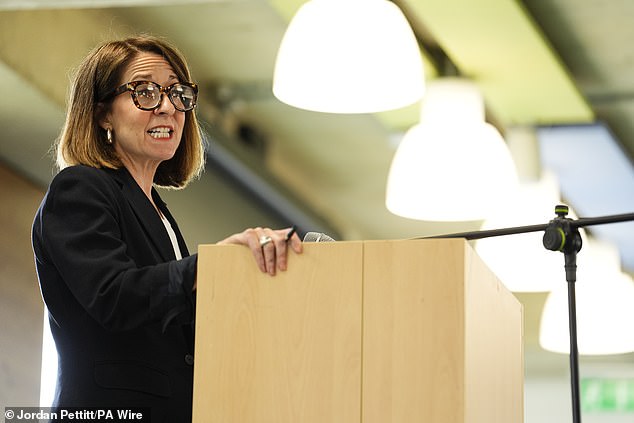Many people dream of retiring early or at least on time—but that goal might become harder to reach.
With the UK government looking into pension sustainability, there’s growing speculation that the state pension age could rise faster than originally planned.
A Fresh Review Sparks Rising Concerns
The government has just launched a formal review into the state pension system, reigniting debates about when people should be allowed to retire.
At the centre of this review is the decision to bring back the Pensions Commission, which hasn’t been active since 2006.
The goal? To find solutions to what many experts see as a looming retirement crisis.
Nearly half of working-age Britons are not saving a single penny towards retirement, according to the government.
This lack of preparation is putting a huge strain on public finances and the long-term feasibility of supporting people in old age.
Pressure Mounts on the Triple Lock Promise
One key issue under the microscope is the so-called “triple lock.”
This rule guarantees that state pensions increase each year by the highest of three figures: inflation, wage growth, or 2.5%.
It sounds like a solid plan to protect pensioners—but it’s turning out to be incredibly expensive.
The Office for Budget Responsibility (OBR) recently warned that the triple lock might end up costing three times more than initially predicted by 2030, especially with more people living longer and drawing pensions for longer periods.
Pensions Age May Reach 70 Sooner Than Expected
Currently, the state pension age is set to rise to 67 between 2026 and 2028, and then to 68 between 2044 and 2046.
But earlier reports—particularly one from Baroness Neville-Rolfe, a former Tesco director—have recommended moving those dates forward.
If her suggestions are adopted, retirement could hit 68 as early as 2041–2043 and then climb to 69 between 2046 and 2048.
By the 2050s, people born in the 1980s might find themselves working until at least 70 before they can collect a state pension.
One model even proposes tying the retirement age to a percentage of life expectancy, suggesting Britons should spend just 31% of their lives in retirement.
New Research and Reports in Progress
Dr. Suzy Morrissey has been tasked with exploring which factors should be taken into account when deciding on the pension age.
At the same time, the Government Actuary’s Department is working on calculating how much of adult life people typically spend in retirement.
However, any major decisions on changes to the pension age are expected to be delayed until after the next general election, giving people more time to adapt to the potential shifts.
Many Are Still Not Saving for Retirement
According to recent figures, a staggering 45% of working-age adults in the UK aren’t contributing to any pension plan.
That’s why Work and Pensions Secretary Liz Kendall is reviving the Pensions Commission—to tackle the barriers preventing people from saving.
The last time this commission met, it recommended automatic workplace pension enrolment.
Since then, participation has improved significantly—from just 55% of eligible employees in 2012 to 88% today.
But that still leaves millions at risk.
Gaps in Pension Savings Are Widening
A troubling 15 million people are considered to be undersaving for retirement.
This includes self-employed workers, those in lower-paying jobs, and individuals from certain ethnic backgrounds.
Only about a quarter of private sector workers earning low wages are saving anything for retirement.
The same figure applies to workers of Pakistani or Bangladeshi heritage.
And when it comes to the gender gap, women approaching retirement are expected to have barely half the pension income of their male counterparts.
A Long Road Ahead for Policy Reform
The new commission will be led by Baroness Jeannie Drake, who previously served on the original one.
Their report, due in 2027, will likely shape pension policy beyond the upcoming election.
Experts like Laurence O’Brien from the Institute for Fiscal Studies say the commission’s work is urgently needed.
Even though automatic enrolment has helped, nearly 7 million employees saving into defined contribution pensions still face the prospect of disappointing retirement incomes.
On top of that, only 20% of self-employed workers are currently saving for their future.
O’Brien emphasizes that any new policies must be designed with care, especially for people who are already struggling to make ends meet.
What Could Happen Next?
The big question now is how the government will balance sustainability with fairness.
Raising the pension age might ease the burden on public finances, but it also risks leaving millions working longer and retiring poorer—especially those already falling behind in savings.
As the commission begins its work and new research is gathered, many will be watching closely to see how these discussions shape the future of retirement in Britain.
